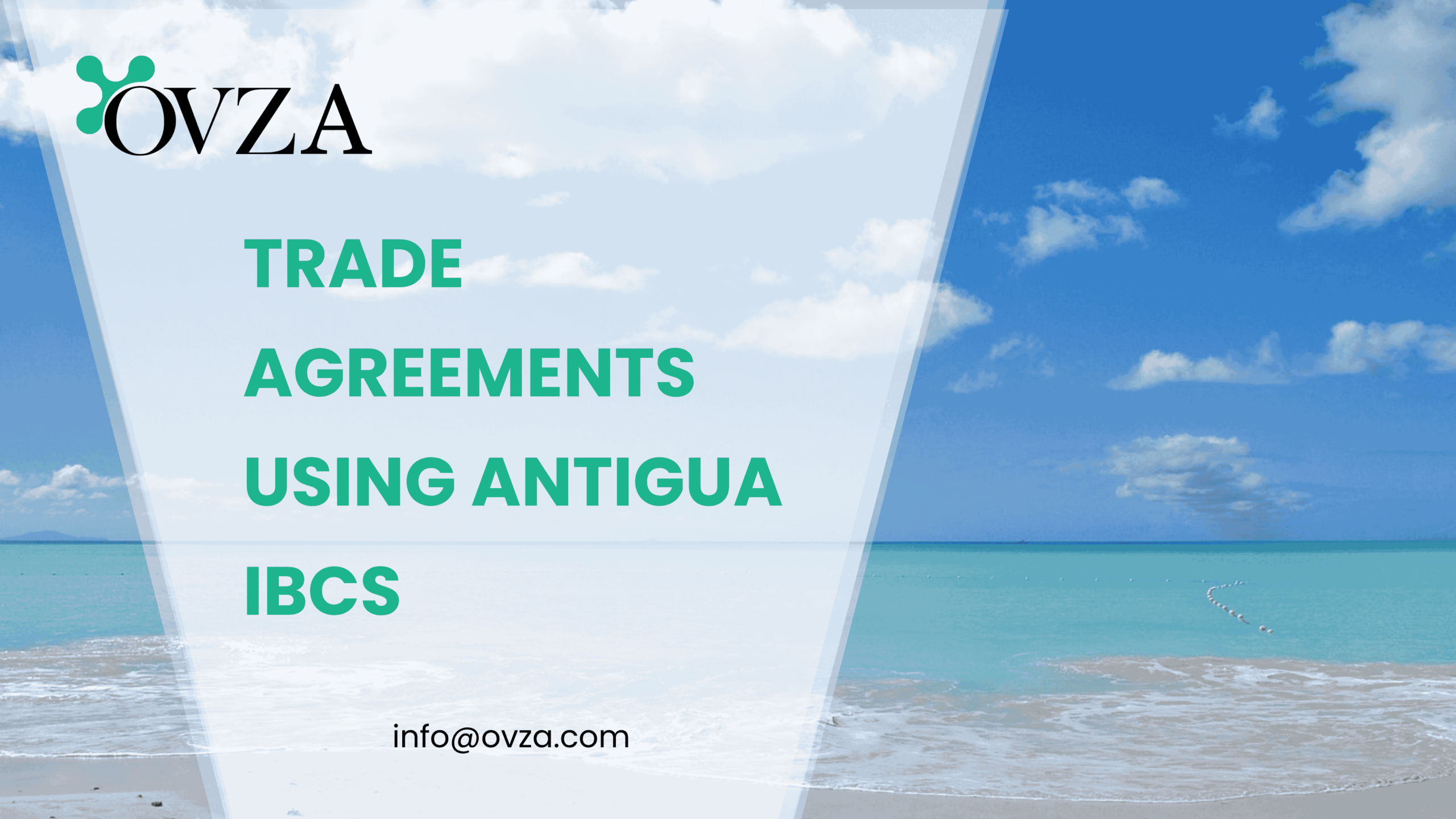Offshore succession planning ensures legal continuity, asset protection, and regulatory compliance across family generations. The process of transferring control of a family business across generations presents significant legal and operational challenges, particularly where offshore structures are involved. Family business offshore succession planning must reconcile inheritance law, tax efficiency, asset protection, and governance continuity within a multi-jurisdictional framework. This complexity increases when the business or its assets are held through offshore entities such as International Business Companies (IBCs), private foundations, or offshore trusts, each governed by distinct legal principles and regulatory obligations.
Legal Strategies and Cross-Border Structuring
Offshore succession planning begins with the legal characterization of ownership. In many offshore jurisdictions, shares in IBCs may be held by individuals, nominee shareholders, or discretionary trusts. When these entities are used to hold operational businesses or investment portfolios, their succession must be planned not only in terms of civil law inheritance rules but also with reference to the governing law of the offshore entity. In the British Virgin Islands, for instance, the BVI Business Companies Act permits shares to be transferred by will or held in trust, subject to the internal rules of the company and the laws of probate in the relevant jurisdiction.
Where trusts are employed, the legal arrangement allows a settlor to transfer legal ownership of shares into a trust vehicle while retaining control mechanisms through the appointment of protectors or reserved powers clauses. These features are particularly relevant in family business offshore succession planning, as they allow founders to retain a degree of control while implementing long-term succession goals. The use of offshore trusts is recognized in most common law jurisdictions, and their operation is generally protected under the Hague Convention on the Law Applicable to Trusts and on their Recognition (1985), although not all jurisdictions are signatories.
Jurisdictions such as Nevis, Jersey, and the Cook Islands provide trust regimes with statutory firewall provisions that limit the application of foreign forced heirship claims. This is important in succession planning for families whose members are domiciled in civil law jurisdictions that impose rigid inheritance structures. The ability to legally circumvent these rules—where permissible—through a properly constituted offshore trust or foundation allows family business succession to proceed according to a founder’s intent rather than statutory default.
However, the use of offshore structures for succession must be carefully coordinated with tax residency rules, gift and inheritance tax regimes, and disclosure obligations. For example, the OECD’s Common Reporting Standard (CRS) requires financial institutions in participating jurisdictions to report information about trusts and offshore companies where controlling persons are reportable residents. As a result, beneficiaries or settlors of offshore succession structures may have reporting obligations in their home countries, even where the entity itself enjoys privacy or tax neutrality.
Planning for succession in family businesses also involves the integration of governance protocols that outlive the founder. This includes the appointment of directors, managers, or trustees with defined roles in the transitional period. It may also involve the use of shareholder agreements or trust instruments that establish veto rights, conflict resolution clauses, or voting thresholds to maintain intergenerational control. These legal arrangements can be codified in the corporate governance framework of the offshore company or in ancillary instruments such as letters of wishes, shareholder compacts, or private family constitutions.
Interplay of Domicile Law, Tax Exposure, and Legal Instruments
The design of family business offshore succession planning must account for the legal implications of the founder’s domicile and the tax residency of beneficiaries. In many jurisdictions, including the United States, Canada, and EU member states, individuals are subject to taxation on worldwide income and assets, which may include those held through offshore trusts or corporate entities. Consequently, a succession strategy must be built on a dual analysis—first, of the offshore legal structure’s internal succession mechanisms, and second, of how those mechanisms will be treated under the domestic laws of the parties involved.
In civil law jurisdictions, forced heirship regimes can present significant challenges. These systems often mandate that a specific percentage of the estate be allocated to heirs regardless of the testator’s intentions. Offshore planning seeks to mitigate these constraints through the use of inter vivos transfers, trusts, and foundations. However, the success of such arrangements depends on the enforceability of firewall provisions and the willingness of foreign courts to recognize the primacy of offshore governing law. For instance, statutory firewalls found in jurisdictions like the Cayman Islands and Nevis are designed to shield trust assets from claims based on foreign inheritance laws, but their effectiveness is fact-specific and may be tested in courts outside the jurisdiction of formation.
From a tax planning perspective, many families incorporate holding companies in tax-neutral jurisdictions such as the British Virgin Islands or Vanuatu, where corporate profits are not taxed locally. These companies may serve as centralized vehicles for holding operating subsidiaries, real estate, or investment portfolios. If structured correctly, they allow for consolidation of ownership, reduction of probate exposure, and streamlined governance. However, beneficial ownership transparency requirements, such as those under FATF Recommendations and EU AML Directives, require that control and benefit over such structures be clearly documented and, in some cases, reported.
Another aspect of family business offshore succession planning is the use of private interest foundations, which combine elements of both corporate and trust law. In jurisdictions such as Panama and Liechtenstein, foundations are frequently used as succession vehicles that hold shares of family businesses, while providing for beneficiaries according to chartered terms rather than discretionary trust arrangements. These instruments are particularly effective when beneficiaries span multiple jurisdictions and when there is a need for rigid asset protection coupled with structured governance.
Legal planning must also consider transitional control. The appointment of interim directors, protectors, or supervisory board members can help mitigate operational disruptions during the succession phase. It is not uncommon for founders to retain powers over major decisions through reserved rights clauses or to establish succession committees within the governance framework of the offshore vehicle. Where multi-generational involvement is anticipated, documents may also include staggered appointments, generational veto thresholds, and conflict resolution protocols that extend beyond simple testamentary instruments.
The maintenance of banking relationships during succession is another technical risk that must be addressed. Offshore companies holding active or custodial accounts may be subject to onboarding reassessments upon change in ownership or control. Financial institutions often request full disclosure of the succession framework, including trust deeds, corporate resolutions, and notarized identification for successors. Institutions regulated under FATCA or CRS may also trigger automatic reporting obligations based on the change in controlling persons. Considerations of account continuity and financial due diligence are particularly relevant where operational liquidity depends on uninterrupted access to banking facilities.
Governance Continuity and Legal Enforceability
A properly executed family business offshore succession planning strategy will not only provide legal continuity but also reinforce institutional trust and operational stability during intergenerational transitions. While many jurisdictions offer flexible offshore structures, the enforceability of succession instruments ultimately depends on the coordination between the offshore legal framework and the domestic legal obligations of beneficiaries and fiduciaries.
Key to this process is ensuring that all relevant documents—such as trust deeds, foundation charters, shareholder agreements, and resolutions—are harmonized with each other and reflect clear intent regarding succession, control, and benefit. Conflicts between governing law clauses or ambiguities in trust instruments can result in costly litigation or regulatory challenge, particularly when competing heirs assert claims in multiple forums. Disputes over control and inheritance of offshore assets are frequently determined not solely by the jurisdiction of incorporation, but by the strength and clarity of the documents underlying the structure.
Additionally, compliance with legal obligations such as beneficial ownership registration, tax reporting, and due diligence procedures must be maintained throughout the life cycle of the succession plan. These obligations are now part of international enforcement architecture and cannot be deferred until transition. Family businesses that rely on outdated or undocumented offshore structures expose themselves to enforcement risk, reputational damage, and potential disinheritance scenarios. Global regulators have placed increasing emphasis on the transparency of succession vehicles, particularly in the context of cross-border estate planning and offshore asset management.
Moreover, succession must be planned not only for wealth but also for governance. Family businesses with ongoing operational functions require a board structure or fiduciary framework that continues to function even in the absence of the founder. The use of professional directors, succession protocols within the company constitution, or designated legal guardians in trust or foundation structures may provide the legal continuity needed to avoid paralysis during transition. Effective succession planning therefore involves not just asset transmission but also legal mechanisms for operational stewardship.
In circumstances where the family business spans multiple jurisdictions, additional structures may be required to mitigate local tax or inheritance complications. Sub-holding companies, nominee arrangements, and jurisdictional segmentation may be used to preserve the business’s continuity and shield beneficiaries from multi-layered legal exposure. These must be legally justifiable, documented in accordance with applicable law, and structured with attention to the legal implications of each jurisdiction involved.
Conclusion
Family business offshore succession planning is a legally complex endeavor that requires alignment of private international law, tax regulation, fiduciary obligations, and commercial continuity. Offshore structures such as trusts, foundations, and IBCs provide powerful tools for intergenerational wealth transfer when used in accordance with governing law and global compliance expectations. However, these instruments must be coordinated with the legal systems of the beneficiaries, financial institutions, and regulatory authorities involved.
The success of such planning depends not only on the structure itself but on the strength and enforceability of the underlying legal documentation. As international legal standards evolve and transparency becomes the norm, succession planning must be executed with greater precision and foresight. The legal literature onoffshore structuring and compliance continues to develop alongside these regulatory trends, offering reference points for navigating succession in a cross-border legal environment.
Disclaimer: The information provided on this website is intended for general reference and educational purposes only. While OVZA makes every effort to ensure accuracy and timeliness, the content should not be considered legal, financial, or tax advice.










